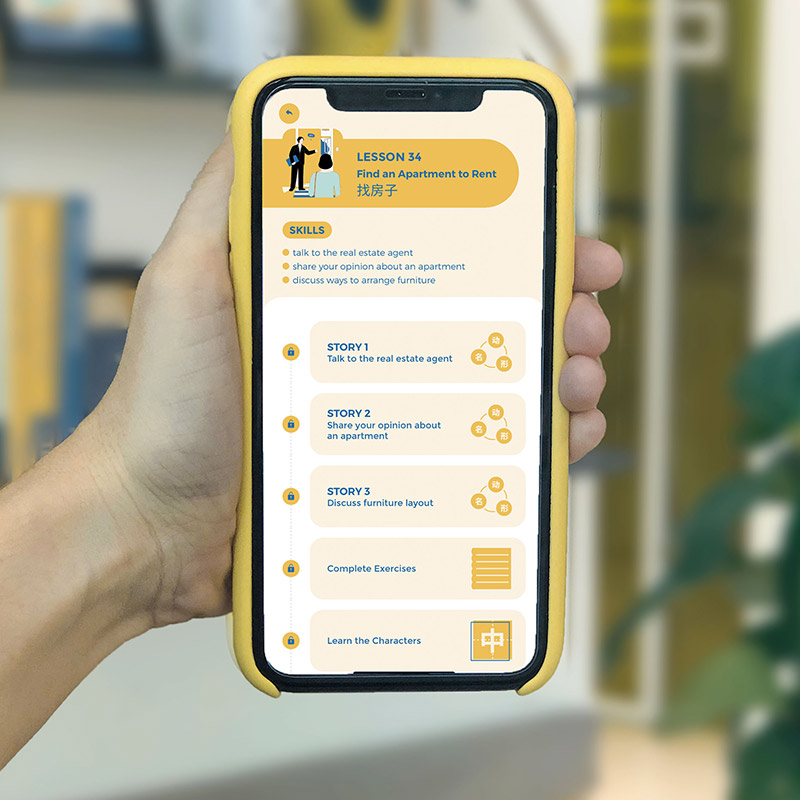A first-hand account of how to learn Chinese online with the NihaoCafe.
How do I choose what online resources to learn Chinese with?!
If you’re thinking “how can I learn Chinese online” and looking for online Chinese classes, you might be wondering how to find the ‘perfect’ teacher or platform. Unfortunately, there’s no correct answer. Every online Chinese teaching platform has advantages and disadvantages and every learner has unique requirements. For example, I LOVE Pleco, but I have a friend also learning Chinese who prefers other apps. Neither of us are wrong.
You should establish your priorities first, to help you make your way through different platforms. You need to consider elements such as budget, frequency, structure and qualifications of teachers. These great primary requirements will help help you cut through the ocean of Chinese resources online. Next, when you’re finally choosing between platforms, first-hand accounts are a total game changer. To help you break down the honest pros and cons of learning Chinese online with NihaoCafe, I wrote about my personal experience on the platform. You can check out another first-hand account to compare if you’d like to here. Ultimately though, don’t just listen to reviews – read experiences too!

What is NihaoCafe?
The online learning platform offers a well-rounded, structured program that covers speaking, listening and reading. It delivers content through variety of different materials, such as graded texts, videos and key vocabulary. Lessons follow specially crafted storylines that cover any situation you might face in the real world.
All of the teachers are super supportive and bilingual with a great understanding of the English language. They are able to really help learners overcome basic mistakes and develop better habits. My teachers helped me stop translating directly from English and remember to try think in Chinese. Teachers will set homework that allows the student to review the content of the class, whilst the platform is freely accessible outside of the classroom and provides surplus additional materials worth reviewing and previewing. The platform isn’t free, but the value for money is superb.

My experience choosing NihaoCafe
For my first lesson on NihaoCafe, I wasn’t sure what to expect. I’ve used multiple other platforms for self-studying Chinese online and although all have been useful, I’ve lacked direction. Consequentially, my Chinese level stagnated along with my progression. I need a course that isn’t too rigid, but equally structures my learning for me. I’ve also found the HSK test to be a fantastic way of quantifying my Chinese level, but the current content is limited and not focused around speaking – the most important part of learning. I do enjoy practising my reading, but often forget a lot of the new words I learn because I don’t see them outside of the classroom.
I entered my first lesson apprehensive, but eager to learn. Fortunately, I was extremely pleased with NihaoCafe from the very beginning. The interface is suitable for all levels and any Chinese characters can be clicked on for the pinyin and translations. Further, grammar points, if clicked, also present example sentences to help the learner learn in context. I was sold.
I currently study four hours a week, split between two teachers and I love that they share notes from my lessons so that I don’t need to update each teacher after every lesson. Equally, they teach from the same content, picking up where the previous teacher left off, ensuring we don’t waste time relearning the same topic, instead skilfully encouraging me to use previous content in real conversations.

Has NihaoCafe helped?
Due to the mixed methods approach of teaching, I’ve seen real improvements in all areas of my Chinese in a short period of time. Especially in vocabulary retention and reading! Whilst I am quite shy and previously struggled to find opportunities to practise speaking, the Nihao café provides the perfect opportunity to use the vocabulary in context. The teachers are not strict and we commonly digress into conversations outside of the scope of the lesson. This reflects daily life and provides a realistic learning environment. I also feel a lot more confident practising my speaking now as a result of all the encouragement and corrections from my teachers.
My lessons are one-on-one, which also mean that I can ask specific questions relevant to the content or grammar and focus on the areas I am struggling with. For example, in the first couple of lessons, it became quickly apparent that I found it difficult to adjust tones that naturally change when placed next to each other – for example, the best ways to use the future tense, the various uses of ‘de’, or turning 不 into a second tone, when followed by a fourth tone. Even though I have been learning for years, it’s very easy for basic, foundational grammar points to slip through the cracks, but the Nihao Café’s experienced teachers quickly identified and helped me to overcome this.
The Nihao Cafe is online, however you have the option to come to China and learn in the schools in person too, if you find that you’re really enjoying the classes and want further immersion opportunities.
I don’t know if I should pay when free resources exist?
When you first start out learning Chinese, free Chinese resources online are a blessing. Honestly, they have a lot of benefits.
If you don’t like them, it’s no money lost. You also have the freedom to sample a variety of different teaching methods to decide what works for you. But, you’ll probably have noticed the majority of free apps come with limitations. These include restricted access, a cap on daily activities or adverts at the end of every level. If you’re on a budget, these are fine and shouldn’t be dismissed. In fact, even if you invest in a language platform such as the Nihao café, maintaining these apps as supplementary learning methods is advisable for more meaningful improvements.
However, if you pay, you’re more likely to study. If you’re tired and not in the mood to learn, you’re still likely to attend a lesson you can’t refund. (Classes can be rescheduled with notice and valid excuses though). Further, NihaoCafe lessons operate solely in Chinese (except for translation). Free language exchange’s are great tools to practise, but it’s hard to learn when you spend half of your time speaking own language. No matter how much you go off topic and distract your teacher from the content at hand, they will stick to Chinese. Trust me, I’ve tried.

Why paying *sometimes* helps..
NihaoCafe teachers cater the lessons specifically to you. I adore graded readers, but the reality is we often learn a variety of vocabulary from different levels. This means lower level reads feel frustratingly easy, whilst higher levels have characters we recognise, but use grammar or context we don’t know yet. It is exhausting trying to find everything to suit you, when a teacher can do the leg work for you.
Finally, there’s the common problem with ‘familiarity’. We all do it, where we find an app we love and stick to it. Even though over time, app’s lose their effectiveness, become repetitive or boring. Language learning becomes monotonous if you don’t mix it up and keep yourself interested. Learning Chinese is hard. It’s true. But if you’re using methods that keep you on your toes and regularly present the information in an exciting, digestible manner, you’re more likely to engage with and retain the information. So keep the app’s as long as they serve you, but in the same way you wouldn’t eat something out of date, don’t force a method that’s stopped serving its purpose.
Ultimately, when it comes to cost, you need to evaluate the time you have to spend and your available budget. If free apps currently deliver the content you need and meet your budget, then keep at them! However, if you’re looking for something more specialised and interactive and your budget can afford it, don’t sell yourself short by sticking with an app past it’s sell-by date.

The importance of speaking:
It’s easy to walk into a lesson and say “I want to be fluent in speaking”, but you need to define what you mean by speaking. Do you want to be fluent in day to day conversation? Do you want to hold your own in a job interview? Learn how to talk with students? Set yourself a SMART goal and stick to it. Once you have set this goal – you really should ASAP – then you can work out how to apply it.
The main error students make is learning Chinese without speaking. Many people can read a text book, point at a menu and say ‘this one’ in Chinese or understand requests but struggle to respond. This is because learning to speak Chinese isn’t a passive endeavour.
When learning, it’s crucial to focus on really using the language and practising conversations with your new vocabulary. This helps you retain the correct tone and grammar structures. If you’re thinking “how can I learn Chinese online”, I promise you, practise really does make perfect. Whether you’re HSK 1 or HSK 6, online learning platforms such as NihaoCafe encourage you to speak confidently. After all, you can survive in China without knowing every single character, but you might struggle if you don’t know how to ask for directions or help.



